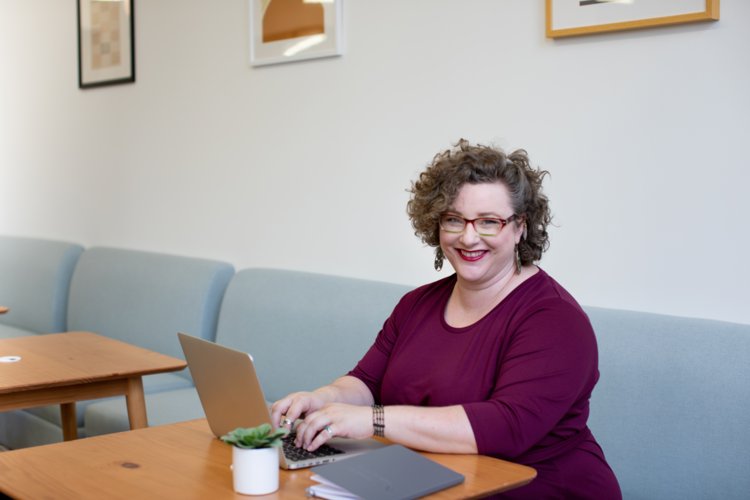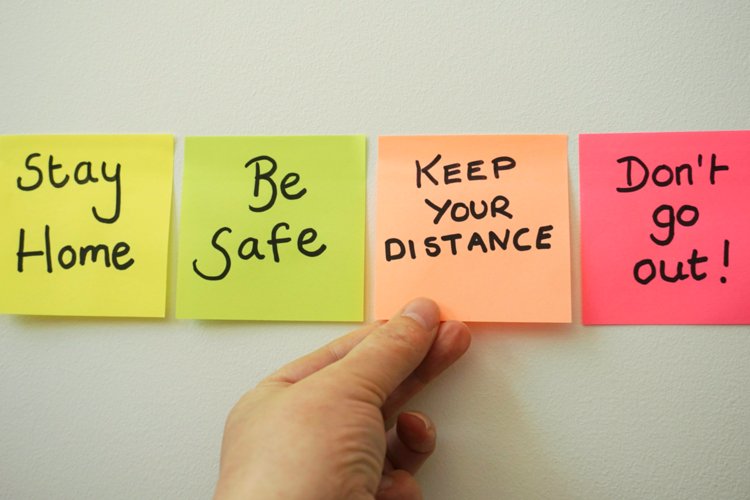5 Steps to Calm Anxiety in a Post Covid World
RAFT Team, June 21, 2021
The pandemic brought with it all sorts of safety measures. You followed them all to protect from sickness and potential death. To protect your family and protect others. You isolated yourself. Got your groceries delivered. You may have delayed non-essential health care appointments. You learned how to learn and work while distanced. And even though you’ve gotten through what seems to be the worst of things and you're resilient to do so, you probably struggled knowing how to calm anxiety.
This is true for a majority of people. Some felt general distraction, others couldn’t sleep. At one time or another, many felt a sense of impending doom. The Anxiety and Depression Association of America (ADAA) lists these symptoms of anxiety:
- Feeling nervous, irritable, or on edge
- Having a sense of impending danger, panic or doom
- Having an increased heart rate
- Breathing rapidly (hyperventilation), sweating, and/or trembling
- Feeling weak or tired
- Difficulty concentrating
- Having trouble sleeping
- Experiencing gastrointestinal (GI) problems
If you’re like most people, you can check a box or two on that list.
You’ve lived in a continual state of hyper-awareness about your health and your loved ones’ health for the past 15 months. You’ve also been juggling a myriad of changes to where and how you work, your children school, and maybe even financial insecurity. In this state of survival, these practices have become habit.
And now, while the pandemic isn’t quite over, things are reopening. This has created a dissonance to life as we’ve known it and coping with these changes can bring additional anxiety. There’s even a name for it: re-entry anxiety.
How can we support ourselves through these changes? And how can we support those we interact with, whether loved ones or clients?
Here are 5 ways to help calm anxiety post-covid.
Stay present.
If you pare anxiety down to it’s bare bones, it’s a worry about the future. Anxiety is a continual state of “what if.” As things open up, there are many changes to think through. When you feel anxious, take a moment to notice what you’re really thinking. What are you concerned about? Have your thoughts run ahead of the present moment and into “what if” territory? If so, bring them back to the present.
Triggers are another way your body and mind can leave the present moment. A trigger is anything that consciously or subconsciously reminds you of your past abuse. It’s almost like a sudden flashback, or a recording playing in a survivor's head. Sometimes you can avoid these triggers, but not always. Remembering to stay present is just one way you can calm this anxiety.

Fact check your thinking.
Watching endless news cycles about the difficulties going on in the world can make you think that worst-case scenarios are reality. Without a digital detox, this type of thinking can lead to anxiety. It can make you assume that most things lead to danger. Here’s what happens in these instances: you have a negative thought and then you go find all the facts you can to prove that that thought is correct. Here’s an example: You tell yourself, “I’m never good enough.” And then your mind goes to all the things you feel you’ve fallen short on. You should be a better parent. Should have had a healthier dinner. You should exercise. And should have handled that situation better. The list is endless once your mind gets going. And every single one of them is shaming you for your action or lack of action.
So how you change this type of thinking? Learn to identify that negative thought, isolate it, but then find some facts that tell a different story. So when your mind tells you, “I’m not good enough,” start a new list: I’m learning to stay present when I’m with my kids. I didn’t eat healthy last night but overall I’ve developed better eating habits. I’m getting outside and walking more consistently than I have in the past. In other words, give yourself grace and acknowledge progress. Because it’s your thoughts that dictate your actions and emotions. When you can reframe them, new opportunities open up for you.
Uncurl your body.
Uncertainty and fear create tension. The body naturally responds to this tension by curling up and making yourself smaller. Shoulders hunch over, fingers ball up into fists, jaws tighten, and you take shallower breaths. Your head may start to hurt, your heart may start to race.
When you notice these physical responses to anxiety, help calm your body by taking steps to uncurl. Take deeper breaths to expand your chest. Sit up straight and roll your shoulders back. Relax your jaw and stretch out your fingers. These physical responses help remind your brain that you are not in danger. That there is no immediate threat. You can further aid your body by acknowledging the present moment. Statements like, “I am safe in this moment” further remind you that you are safe in the present moment. Meditation can help your body relax as well.
Say no.
Take your own pace when it comes to re-entry into the post-covid world. If you’re not ready to join large groups of people or wander through a crowd, that’s okay. You can start slowly by getting together with just one or two people. You can gradually enter into a new set of habits and new post-covid routine. While you do, clearly communicate your boundaries and honor the boundaries of others. And remember, “No,” is a complete sentence. And each no makes room for a positive yes.
Embrace gratitude.

Anxious thoughts are often born when we imagine all the negative things that may happen. Gratitude can help ground you and reframe your thinking by reminding yourself of all the good things that have happened. Taking time to acknowledge even the little things you’re thankful for trains the brain to look for the positive rather than the negative. Create a gratitude journal to record these good things. Build a family gratitude practice by making it a habit at dinner to share a positive thing from everyone’s day. Build a culture of gratitude in the workplace and in your home. Not only will you begin to feel more secure, you’ll quickly find the joy of having so many good things in your life! Gratitude and resilience go hand-in-hand.
When you're able to implement these 5 steps, anxiety will begin to fade. Be patient with yourself — new habits take time.







